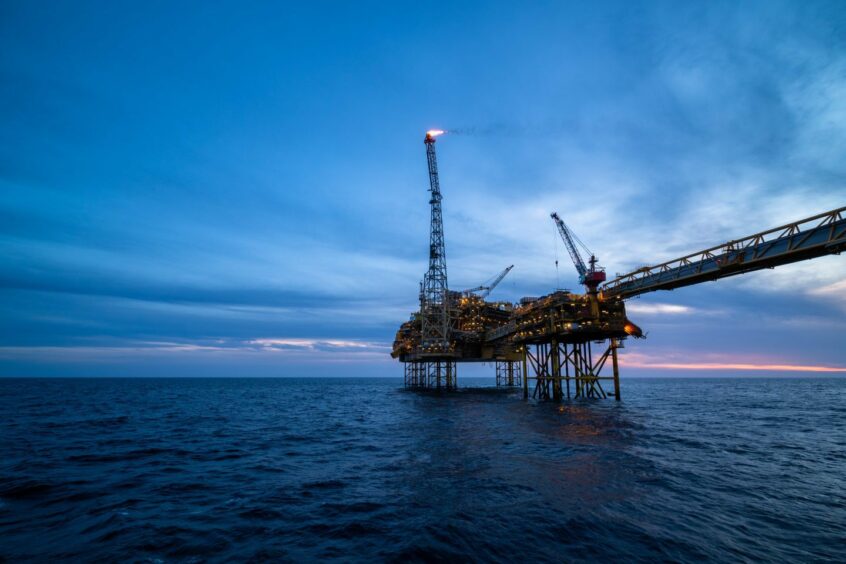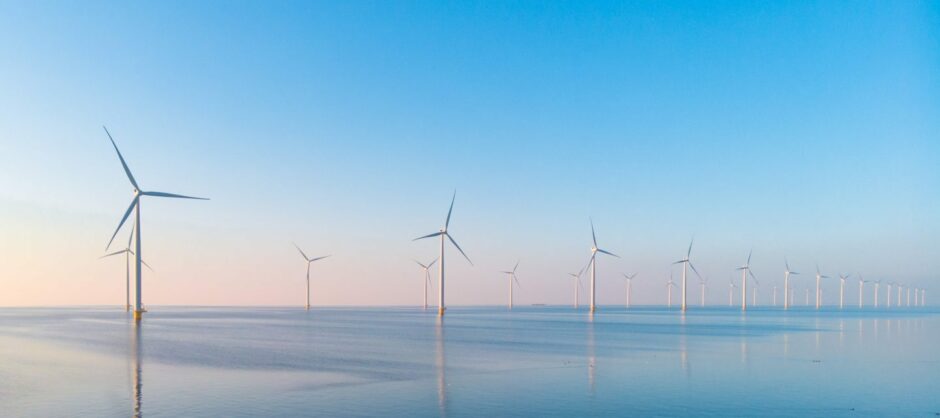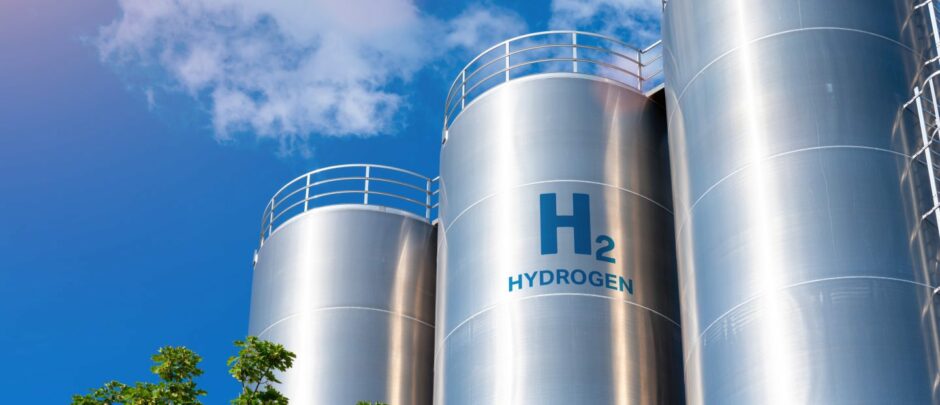
Decarbonisation is one of the biggest challenges of our time, but one challenge we need to tackle if we in the UK are to meet our climate commitments. We all can make a meaningful contribution.
-
Some Energy Voice online content is funded by outside parties. The revenue from this helps to sustain our independent news gathering. You will always know if you are reading paid-for material as it will be clearly labelled as “Partnership” on the site and on social media channels,
This can take two different forms.
“Presented by”
This means the content has been paid for and produced by the named advertiser.“In partnership with”
This means the content has been paid for and approved by the named advertiser but written and edited by our own commercial content team.
For the UK’s offshore energy sector, decarbonisation means reducing greenhouse gas emissions from the production of the energy the UK needs, as the nation cuts emissions from the usage of that energy.
For others, the answer to the challenge is completely halting the production of all domestic oil and gas.
But Mike Tholen, sustainability and policy director at Offshore Energies UK (OEUK), says the solution is not that clear cut.
He says: “As we build a sustainable future, it is becoming increasingly clear that there is no simple choice between oil and gas on the one hand and renewables on the other. The reality is that to keep the lights on and grow our economy, we need both.”
When you take into account that by the mid-2030s oil and gas will still provide for 50% of our energy needs – the path to net zero is a marathon, it’s not a sprint.
“Today 23 million UK homes are heated by gas boilers; 30-plus gas-fired power stations produce about 40 per cent of our electricity, and we have 32 million cars running on diesel and petrol,” Mike adds. “The UK’s homes and businesses cannot yet do without these fuels, but the ongoing war in Ukraine shows the risks of relying on other countries for our energy needs. It will take time and investment to cut our reliance on gas and oil.
“That is why it is vital that we produce our own energy as sustainably as possible – and one facet of that is gradually decarbonising production from our offshore oil and gas industry. Our North Sea reserves mean the UK can continue to support its needs – provided we keep investing – while building the low-carbon systems for the future.”
Progress
In the UK, the Government has set a net zero target of 2050, and in Scotland it is 2045. The UK’s offshore oil and gas industry was one of the first industrial sectors to commit to these goals.
Mike sees two sides to the decarbonisation challenge: “First of all, we need to cut our own carbon footprint – our scope one and scope two emissions – and how we get the energy out of the ground in the first place.
“But we’ve also got to look at emissions from the use of our products. Ultimately, we’re going to continue to need to use oil and gas, be it for fertilisers, plastic products, or a whole range of things, so we must find a way to do it cleanly in terms of using the products.”
The basin has reduced its emissions from the production of oil and gas by 20% since 2018 and has assigned ambitious carbon and methane reduction targets through the landmark North Sea Transition Deal. These improvements have been achieved by progressive reduction of flaring, fundamental changes to operations and increased investment in new abatement technologies.
But there is, of course, room to improve.
To get to the heart of the challenge OEUK will hold its first ever Decarbonisation Conference in October. It will focus on how we continue to supply the nation with the energy it needs while cutting emissions, what solutions are out there and how government policy can help the drive to net zero.
Providing secure, low carbon energy remains a priority. In the rest of this decade alone the sector could spend £200 billion on wind, hydrogen, carbon capture and storage, and oil and gas projects.
The sector is also introducing measures like electrification of production facilities, such as offshore rigs and infrastructure. This could create new energy hubs which combine offshore wind and offshore oil and gas operations and connect them to the National Grid.
But our reliance on oil and gas in our day-to-day lives means Mike does not see continued exploration and production in the North Sea as necessarily counterproductive for net zero.
“It may not intuitively feel like that,” he continues. “But we’ve got some pretty big fundamentals still at the heart of the UK economy that require fossil fuels for energy. Globally oil, gas and coal form nearly 80% of the energy mix. We have to lead the way to show how we produce and use oil and gas cleanly.
“In one sense we’re lucky in the UK as our own gas resources are diminishing. So, we’ve got a range of companies with years of expertise, people and skills looking for new things to do,” Mike adds.
“What we don’t want is for there to be a big gap between what’s going on currently and what comes next. Let’s get the carbon storage and the floating wind going quickly – because if we don’t, we will be meeting our 2050 targets in 2070.”
Getting to zero
So, what’s the recipe for success?
Mike believes we are already on the right path: “OEUK members are helping to develop 13GW of offshore wind capacity by 2030, with these projects requiring almost £30 billion of investment. That’s 60% more than the cost of building the Elizabeth Line.
“Profits made today are being invested in new innovations to accelerate our progress to renewable energy sources.
“The North Sea Transition Deal alone will see us invest up to £16bn by 2035 in low carbon energy and emissions reduction.
“So, we need to keep focused on the horizon. We need to make commitments and get on with it. Don’t get distracted. And because energy is a long game, we must show we’ve got a long-term outlook and long-term energy policy too.
“The need to balance decarbonisation with energy security and affordability has never been greater – so now is the time for action.”
The OEUK Decarbonisation Conference takes place on Thursday October 12 at P&J Live in Aberdeen and tickets can be booked online.
Recommended for you

 © Supplied by Shutterstock
© Supplied by Shutterstock © Supplied by Shutterstock
© Supplied by Shutterstock